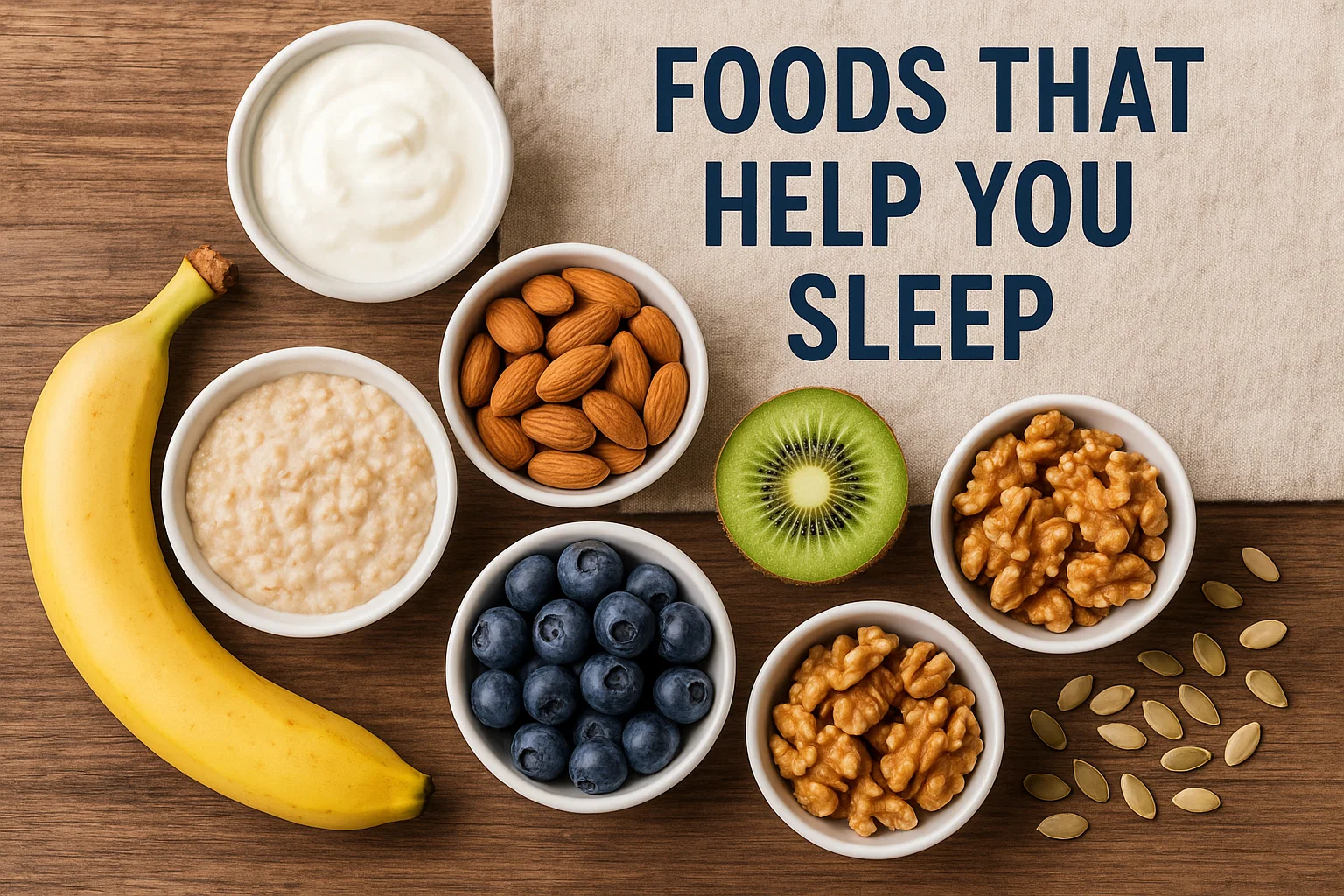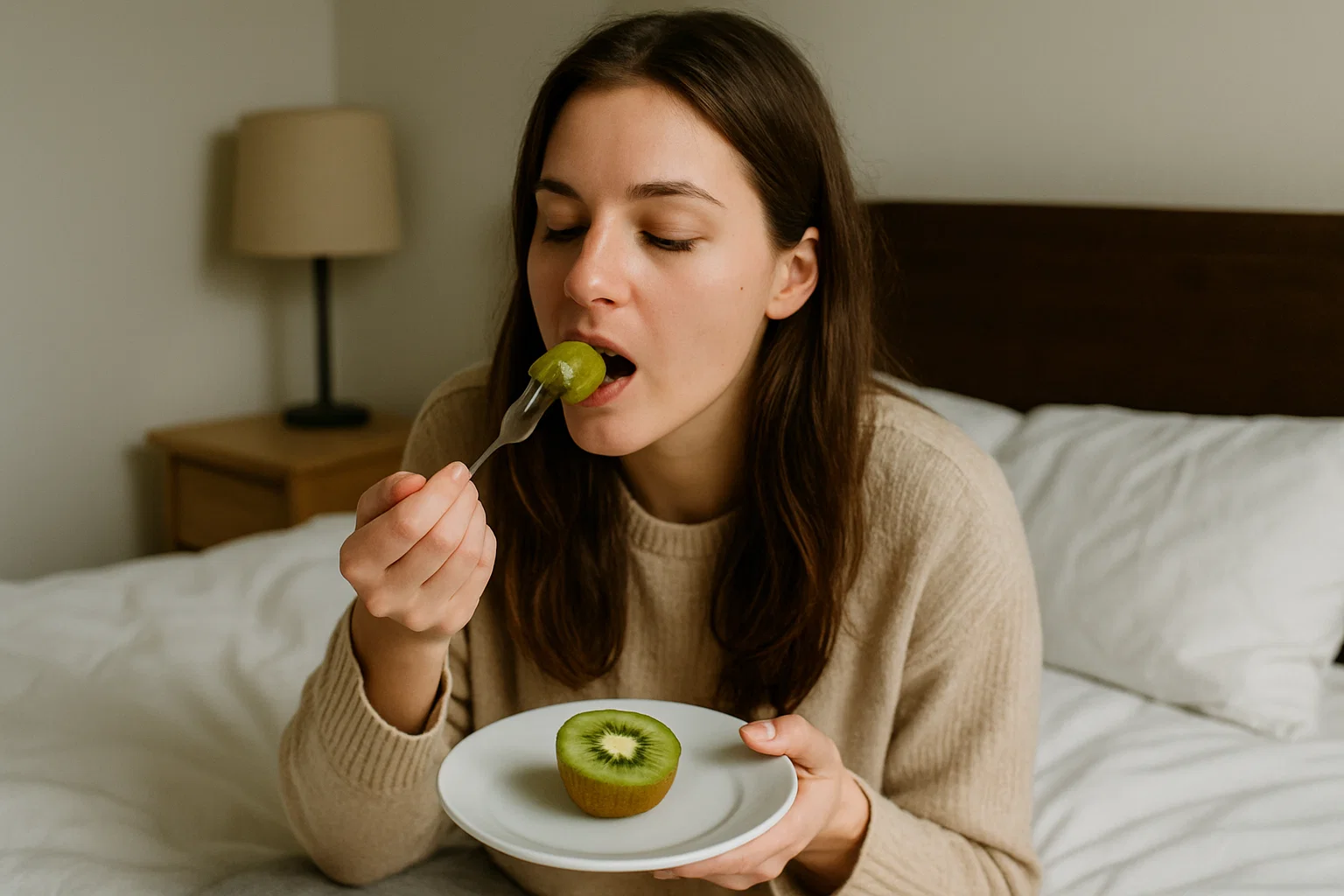
A good night's sleep is essential for physical recovery, mental clarity, mood regulation, and overall well-being. While exercise and stress management are often highlighted as critical factors in promoting quality sleep, nutrition also plays a pivotal role. What we eat can directly impact the production of hormones and neurotransmitters responsible for regulating the sleep-wake cycle.
Certain foods naturally contain compounds that support relaxation, reduce stress, and enhance the body’s ability to fall and stay asleep.
This article explores a selection of scientifically supported foods known to aid sleep and explains how they work. We’ll also introduce an innovative and convenient supplement format — sleeping gummies — that includes ingredients like valerian root, chamomile, and griffonia seed. Whether you’re struggling with occasional restlessness or just want to improve your nighttime routine, these foods and supplements offer natural support for a better night’s rest.
Almonds are a nutrient-rich snack that offer numerous health benefits, particularly when it comes to promoting sleep. They are a great source of magnesium, a mineral that plays a key role in relaxing the muscles and calming the nervous system. Magnesium helps to regulate the production of melatonin, the hormone that governs your sleep-wake cycle. Additionally, almonds provide protein, which can help stabilize blood sugar levels throughout the night, preventing sleep disturbances caused by sudden drops in energy. Eating a small portion (about a handful) of almonds in the evening may contribute to deeper and more restful sleep.
Turkey is often associated with drowsiness after holiday meals, and there’s a scientific reason for that. This lean poultry is rich in tryptophan, an essential amino acid that serves as a precursor to serotonin. Serotonin is then converted into melatonin, the hormone that promotes sleep. Along with tryptophan, turkey contains protein, which may help maintain a steady level of blood sugar during sleep. Including turkey as part of your dinner — perhaps in a salad or wrap — can be a healthy, satisfying, and sleep-supportive choice.
Chamomile tea is one of the most widely used natural remedies for sleep, and for good reason. It contains apigenin, a flavonoid that binds to specific receptors in the brain, producing a mild sedative effect. Chamomile has been shown in clinical trials to reduce sleep latency (the time it takes to fall asleep) and improve sleep efficiency. It’s also helpful in reducing anxiety, which is a common barrier to restful sleep. A warm cup of chamomile tea around 30–60 minutes before bed can be a calming ritual that prepares the body and mind for rest.

Kiwi is a small but powerful fruit packed with vitamins C and E, potassium, and folate. It also has a high antioxidant capacity and is one of the few fruits that naturally contain serotonin. Research from several sleep studies has shown that consuming two kiwis one hour before bed significantly improves sleep onset, duration, and efficiency. The combination of antioxidants and serotonin may help regulate your sleep cycle, making kiwi a healthy and effective bedtime snack.
Tart cherry juice, especially from Montmorency cherries, is another effective food-based sleep aid. It is one of the few natural sources of melatonin and has been found in multiple studies to increase sleep time and overall sleep efficiency. Tart cherries are also rich in anthocyanins, antioxidants that reduce inflammation and oxidative stress — both of which can impair sleep. Drinking 240 ml (about 8 ounces) of tart cherry juice in the evening may help you fall asleep faster and enjoy a more restful night.
Fatty fish such as salmon, mackerel, and sardines are rich in omega-3 fatty acids and vitamin D — two nutrients that have been associated with better sleep. Omega-3s contribute to the regulation of serotonin, while vitamin D has been linked to improved sleep quality and duration. Including fatty fish in your dinner a few times a week may not only support your heart and brain health but also contribute to a more consistent and restful sleep pattern.

Walnuts are another excellent plant-based source of melatonin, as well as omega-3 fatty acids and magnesium. These nutrients work together to promote relaxation, reduce inflammation, and support the regulation of sleep-wake cycles. Some studies suggest that walnuts may also enhance the bioavailability of serotonin. A small serving of walnuts in the evening — either on their own or mixed with other snacks — can make for a satisfying and sleep-promoting treat.
Although white rice is often considered a high-glycemic food, this property can actually make it beneficial for sleep when consumed in moderation. Eating white rice a few hours before bedtime causes a rise in insulin levels, which facilitates the uptake of tryptophan into the brain, supporting melatonin production. In one study, participants who ate rice four hours before bed fell asleep faster than those who didn’t. Pairing white rice with protein and vegetables makes it a balanced and effective meal for evening consumption.
Bananas are a convenient and nutritious sleep-friendly snack. They contain high levels of potassium and magnesium, which are natural muscle relaxants. Bananas also contain tryptophan, which gets converted into serotonin and subsequently melatonin. Eating a banana 30 minutes to an hour before bed may help your body relax and transition smoothly into sleep. They also provide natural sugars and fiber that keep your blood sugar stable through the night.
For those seeking a convenient and effective sleep aid, sleeping gummies containing valerian root, chamomile, and griffonia seed offer a modern solution.
Valerian Root: Known for its sedative properties, valerian root can reduce the time it takes to fall asleep and improve sleep quality.
Chamomile: As previously mentioned, chamomile promotes relaxation and sleepiness through its antioxidant content.
Griffonia Seed: Griffonia seed is a natural source of 5-HTP, a compound that the body converts into serotonin, subsequently increasing melatonin levels.
These ingredients work synergistically to enhance sleep quality. Sleeping gummies are easy to consume and can be a valuable addition to a bedtime routine for those struggling with sleep disturbances.
The 10-3-2-1-0 rule is a guideline to improve sleep hygiene:
10 hours before bed: No more caffeine.
3 hours before bed: No more food or alcohol.
2 hours before bed: No more work.
1 hour before bed: No more screen time.
0: The number of times you hit the snooze button in the morning.
Establishing a consistent sleep schedule, creating a relaxing bedtime routine, limiting exposure to screens before bed, and consuming sleep-promoting foods or supplements like sleeping gummies can help you fall asleep faster.
If you’re feeling sleepy and it’s close to bedtime, opt for light snacks that promote sleep, such as a banana, a handful of almonds, or a small serving of tart cherry juice. These foods contain nutrients that support the production of sleep-regulating hormones.
The best bedtime snacks are those that are light and contain sleep-promoting nutrients. Examples include a small bowl of oatmeal, yogurt with honey, or sleeping gummies with natural ingredients like valerian root and chamomile.